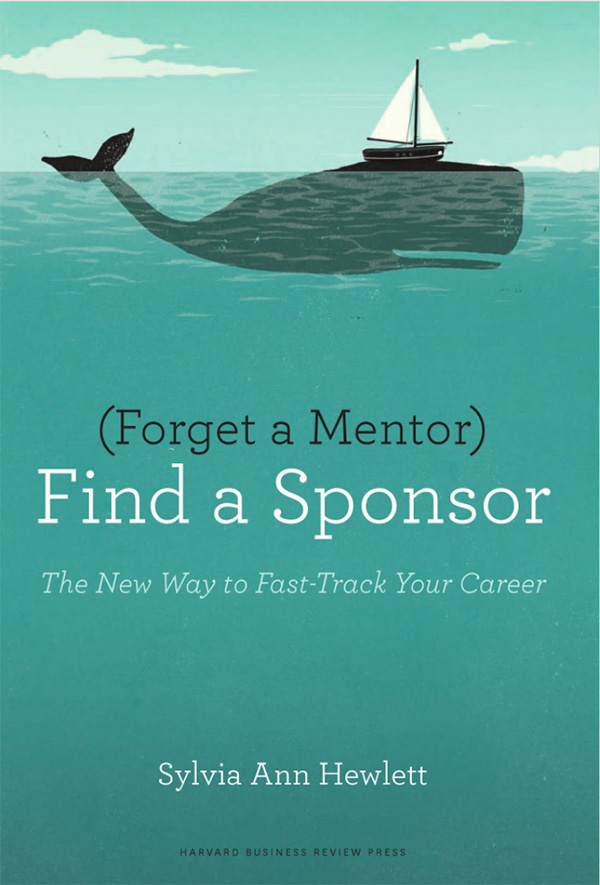Book Review | Forget a Mentor, Find a Sponsor
July 26, 2017 | Hena Patel, MD
WIC Book Review

Mentors serve a useful purpose, but only sponsors can effectively propel a career. In Forget a Mentor, Find a Sponsor, economist, thought leader, and founding president and CEO of the Center for Talent Innovation, Sylvia Ann Hewlett – author of ten critically acclaimed books – provides a road map to help professionals develop a portfolio of sponsors who can open doors and serve as a link to success. Based on her research, she clarifies the distinction between those who can offer encouragement and those who can provide the meaningful support and advocacy to put professionals on the vocational fast track.
Hewlett discovered the value of sponsorship at a young age. With the support of her father and those who supported gender equality in 1960s Britain, she matriculated from Cambridge University. During her time at Cambridge, she was taken under the wing of Jean Grove, PhD, a high-power academic economist. With Dr. Grove’s invaluable support, Hewlett secured grants, co-authored publications, and eventually graduated from Harvard University and London University, where she earned her PhD. She then landed her first job as an assistant professor at Columbia University, a highly sought after position. Unfortunately, this failed to become the promising academic career she had envisioned. Despite bringing a great deal of achievement to the table, Hewlett was denied tenure for one resounding issue – she had no sponsors. Driven away from the academy, her efforts were focused on reinventing her career. She cultivated a sponsorship with dean of the School of International Affairs at Columbia, Harvey Picker. Though Picker did not carry much weight at Columbia, he was influential in the outside world. With his funding, she found a job at the Economic Policy Council in New York, thus emphasizing her point: to succeed, it is essential to have powerful sponsors.
Mentors are those who provide support and advice, and listen sympathetically to those issues one may not dare bring up to a boss or colleagues. They generously offer their time perhaps because they enjoy sharing their wisdom or drawing from their experiences. Or they may be paying back their own early supporters, and are now paying the debt forward. In any case, this is an asymmetric relationship with energy flowing in only one direction.
Sponsors also take interest in their charges' careers, but not out of pure altruism. They are senior-level champions who hold power in an organization, and use their social capital and credibility to advocate for their protégés and better position them to advance in the workplace. They expect to see a return on their investment in an individual. Sponsors may provide advice, give feedback and serve as role models, but their key role is to develop one as a leader. In turn, their protégés are producing meaningful results, building their legacy and overall making them look good.
The main difference between mentors and sponsors is in outcome. Hewlett’s research at the Center for Talent Innovation shows that with sponsorship, a woman is more likely to ask for a big opportunity, seek a raise and be satisfied with her rate of advancement. This is not to belittle the role of mentors, who are undoubtedly necessary. As Hewlett describes, ‘They're not your ticket to the top. Mentors give, whereas sponsors invest.'
Forget a Mentor, Find a Sponsor is written for general readers. However, the main audience is professional women. By combining solid data with real-life narratives, Hewlett reveals the “two-way street” that makes sponsorship such a powerful and mutually beneficial alliance. The book is organized into three parts: Part one convincingly argues for the importance of sponsorship over professional mentorship; part two outlines “how-to’s” for protégés; and part three advises how to avoid the pitfalls that often derail women’s careers. Throughout the book, sidebars profile successful women and describe specific tactics. Though sponsors are not easy to find, Hewlett’s step-by-step roadmap allows readers to reach their ultimate goals, making this book a must read for all women professionals.
This article was authored by Hena Patel, MD, a Fellow in Training (FIT) at Rush University Medical Center, and a member of the FIT Section Leadership Council.

